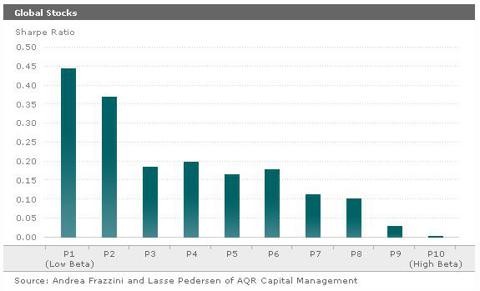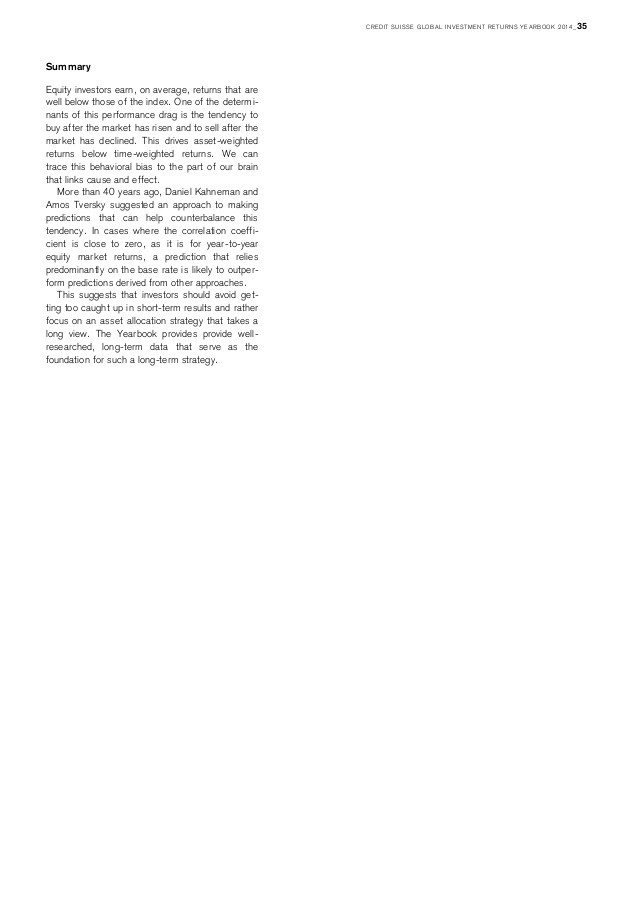Why Average Investors Earn Below Average Market Returns
Post on: 14 Май, 2015 No Comment

Investor Overreactions Cause Poor Historical Returns
Are your investment decisions costing you money? Most likely, the answer is yes. Jeffrey Coolidge/Stone/Getty Images
Dalbar Inc. is a company which studies investor behavior and analyzes investor market returns. The results of their research consistently show that the average investor earns below average returns.
For the twenty years ending 12/31/2013 the S&P 500 Index averaged 9.22% a year. A pretty attractive historical return. The average equity fund investor earned a market return of only 5.02%.
Why is this?
Journalist Howard Gold provides an answer in his article titled Most investors have no idea what they are doing . I tend to agree with Howard. Investor behavior is illogical. Here’s an overview of the typical money-losing moves that average investors make.
Investment Moves That Lose You Money
Study after study shows that when the stock market goes up, investors put more money in it. And when it goes down, they pull money out. This is akin to running to the mall every time the price of something goes up, and then returning the merchandise when it is on sale — but you are returning it to a store that will only give you the sale price back.
This irrational behavior causes investor market returns to be substantially less than historical stock market returns .
What would cause investors to exhibit such poor judgment? After all, at a 9% return, your money will double every eight years. Rather than chasing performance, you could simply have bought a single index fund. and earned significantly higher returns.
The problem is the human reaction, to good news or to bad news, is to overreact. This emotional reaction causes illogical investment decisions. This tendency to overreact can become even greater during times of personal uncertainty; near retirement, for example, or when the economy is bad.
The study of behavioral finance documents and labels our money-losing mind tricks with terms like recency bias and overconfidence. Popular books, like Carl Richard’s The Behavior Gap . also do a great job of explaining the behavioral decisions that lead to the large gap between market returns and actual investor returns.
Despite the research and education, the gap continues. So what can you do to avoid the fate of the average investor?
One of the best things you can do to protect you from you is to seek professional help and hire a financial advisor. If so, use a disciplined screening process to find the right advisor for you.

An advisor can serve as an intermediary between you and your irrational emotions. If you are going to manage your own investments, you’ll need your own way to keep your emotions out of the buy/sell process. Consider using the four rules below.
- Do nothing. A conscious and thoughtful decision to do nothing is still a form of action. Have your financial goals changed? If your portfolio was built around your long-term goals (as it should be), a short-term change in markets shouldn’t matter.














